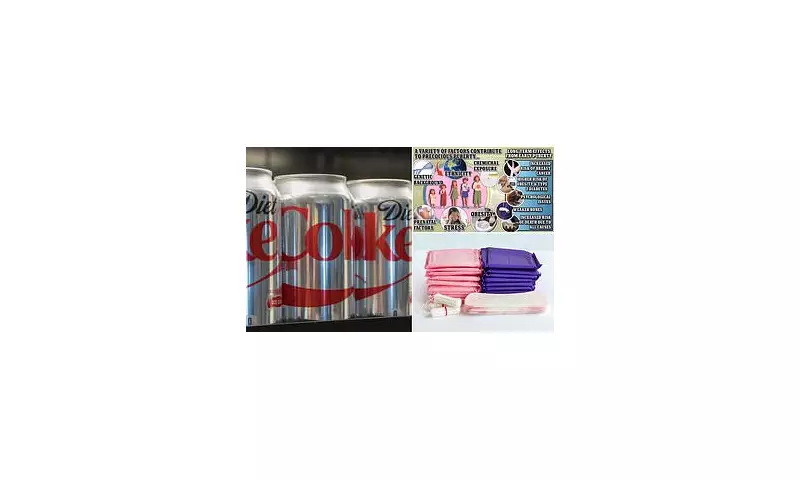
A groundbreaking study has raised alarming concerns about the potential health effects of aspartame, the artificial sweetener widely used in Diet Coke and other sugar-free beverages. Researchers suggest that this popular sugar substitute could be triggering early puberty in children, a phenomenon linked to long-term health risks.
The Hidden Dangers in Your Favourite Fizzy Drink
Scientists have discovered that regular consumption of aspartame may disrupt normal hormonal development in children. The study, conducted over several years, observed that children who regularly consumed artificially sweetened drinks showed signs of puberty significantly earlier than their peers.
What the Research Reveals
The findings indicate that:
- Children consuming aspartame-sweetened drinks entered puberty 6-8 months earlier on average
- Early puberty was associated with higher risks of metabolic disorders later in life
- The effect appeared dose-dependent, with higher consumption linked to earlier onset
Why This Matters for Parents
Early puberty isn't just about physical changes. Medical experts warn it can lead to:
- Increased risk of certain cancers
- Higher likelihood of developing type 2 diabetes
- Potential psychological and social challenges
- Long-term reproductive health implications
Nutritionists are urging parents to reconsider allowing children to consume diet sodas and other products containing artificial sweeteners. "We're seeing these effects at consumption levels many children easily reach," warned one lead researcher.
The Industry Response
Beverage manufacturers maintain that aspartame is safe when consumed within recommended limits. However, this new research adds to growing concerns about artificial sweeteners' potential endocrine-disrupting effects, particularly in developing children.
As the debate continues, health experts recommend water or naturally flavored alternatives as safer options for children's hydration needs.





